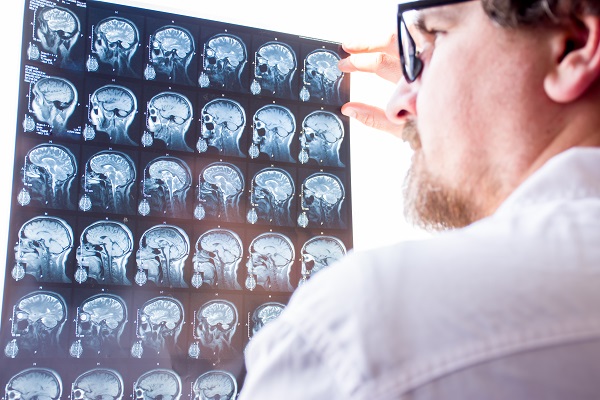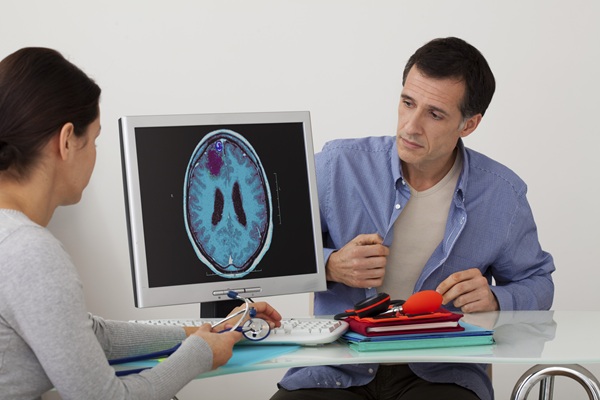5 Reasons You Need to See a Neurosurgeon

It is about more than just the brain
Neurosurgeons are known as the doctors who perform complicated operations on the brain. Interestingly, brain surgery is just a small part of what neurosurgeons do. They deal with the entire nervous system, treating every part of the body affected by nerve issues.
Surgery is usually the last resort
On a typical day, a neurosurgeon will spend their time diagnosing patients' symptoms and coming up with progressive, minimally invasive treatment plans. Neurosurgeons perform surgery only if there are no better treatment options. They prefer to take the conservative approach to an illness whenever possible.
It may be hard to believe, but neurosurgeons also treat "common" diseases like back pain, migraines, pinched nerves, epilepsy, stroke and chronic pain. You do not need to have a life-threatening condition to see a neurosurgeon. In fact, a neurologist is your best bet if you show any of the symptoms below:
1. Numbness and pain
Persistent numbness, especially in the extremities, is a symptom of sensory nerve damage. Sensory nerves are found under the skin and in the muscles. They carry information back to the brain. If the nerves fail to do so correctly, then numbness, burning, tingling or pain occurs.
2. A weak grip
The hand can lose the ability to grasp objects because of pain or loss of sensation. Usually, this is caused when the wrist swells as a result of injury or illness. The swollen wrist constricts the median nerve, causing pain, tingling or loss of sensation. This condition is known as carpal tunnel.
Carpal tunnel develops gradually. To prevent worsening of the condition, a person should seek medical attention as soon as they notice even the smallest of symptoms.
3. Persistent headaches
When the head hurts for hours or days on end, it is time to see a neurologist. Persistent headaches or migraines are usually accompanied by light sensitivity and nausea. They happen when overexcited nerves wrongly cause veins and arteries to narrow and release chemicals that cause pain.
With the patient's input, a neurosurgeon will isolate the trigger of the migraine and create a treatment plan to manage or eliminate the headaches.
4. Impaired movement
Clumsiness, tremors, shuffling and uncontrollable body movements are all types of impaired movement. These symptoms can be a result of a malfunction of the central nervous system or a side effect of medication or head trauma.
A neurologist is best qualified to figure out if a serious underlying condition exists.
5. Seizures
Most people picture seizures as violent convulsions and loss of consciousness. Often, they are milder and more subtle. A person may have a seizure while sitting perfectly still. A person who has suddenly started having seizures should seek a diagnosis and treatment as soon as possible.
See the doctor sooner rather than later
You should not downplay symptoms that keep coming back. Visit a neurosurgeon to find out and treat the root cause of any discomfort you may feel. The sooner you find out what is going on, the sooner you can get the care you need.
Let's get started …
Are you looking for a neurosurgeon in the Phoenix area? Get more information at https://arizonaneurosurgeon.com.
Check out what others are saying about our services on Google: Neurosurgeon in Phoenix, AZ.
Recent Posts
Brain metastases are a serious medical condition where cancer cells spread from a primary tumor to the brain. They are more common than primary brain cancer tumors and can indicate an advanced stage of systemic cancer. This condition can significantly affect your quality of life and requires professional diagnosis and treatment.Brain metastases occur when cancer…
Facial reanimation is a specialized surgical approach designed to restore movement and expression in individuals affected by facial paralysis. This condition may result from trauma, nerve injury, tumor removal, or conditions such as Bell’s palsy. Facial reanimation combines microsurgical techniques, nerve grafting, and muscle transfers to improve function and appearance. When performed by a skilled…
Brain surgery is a complex and delicate procedure. It requires strict aftercare to ensure optimal recovery and few complications. Following the advice of your brain surgeon can help aid your healing process and make your long-term treatment a success. Here are some general tips from Randall Porter, M.D. team to help patients and their caregivers…
Considering undergoing back pain treatment from an experienced chiropractor? There are many different types of back pain one can experience. There are also many different types of back pain treatments available from a chiropractor. While back pain is more common as one gets older, anyone can experience back pain. The most common cause of back pain…


